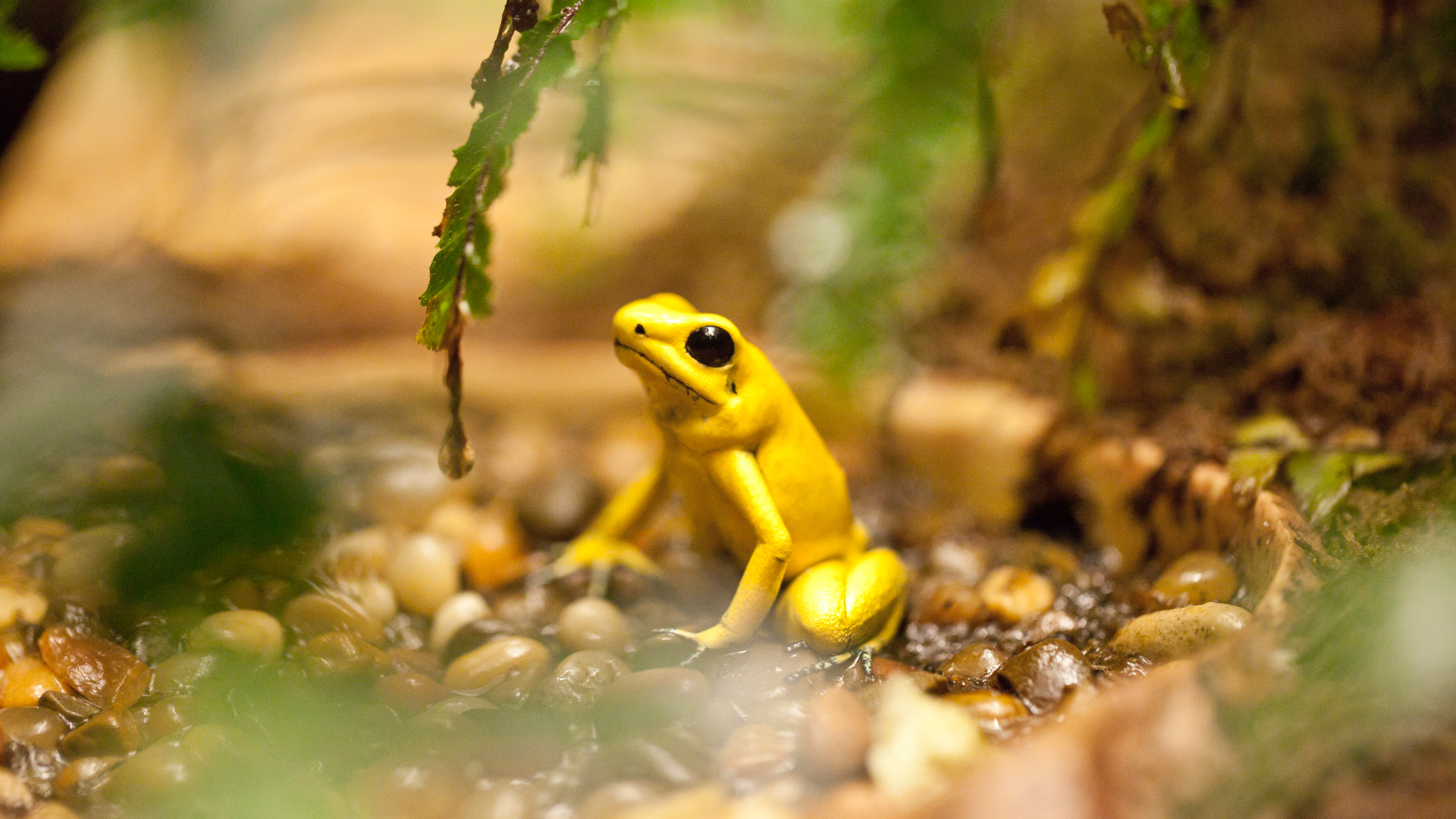Why frogs and other amphibious 'climate captives' are 'the world's most threatened animals'
Endangered mammals and birds get a lot of attention, but amphibians are faring much worse in this hotter world


A free daily email with the biggest news stories of the day – and the best features from TheWeek.com
You are now subscribed
Your newsletter sign-up was successful
More than 40% of the world's frog, salamander and other amphibious species are threatened with extinction, researchers reported Wednesday in the journal Nature. The comprehensive survey of global amphibious populations found that things have gotten worse for the cold-blooded vertebrates since the International Union for Conservation of Nature conducted its first headcount in 2004.
The nearly 41% of endangered amphibian species compares with 27% of mammals, 21% of reptiles and 13% of birds, the study said. "Amphibians are the world's most threatened animals," Duke University frog researcher Junjie Yao, who was not involved in the study, told The Associated Press.
The biggest threat to amphibians remains the loss of habitat to farming and ranching, the study found, but climate change is a growing peril.
The Week
Escape your echo chamber. Get the facts behind the news, plus analysis from multiple perspectives.

Sign up for The Week's Free Newsletters
From our morning news briefing to a weekly Good News Newsletter, get the best of The Week delivered directly to your inbox.
From our morning news briefing to a weekly Good News Newsletter, get the best of The Week delivered directly to your inbox.
"As humans drive changes in the climate and to habitats, amphibians are becoming climate captives, unable to move very far to escape the climate change-induced increase in frequency and intensity of extreme heat, wildfires, drought, and hurricanes," Jennifer Luedtke Swandby, a lead author of the study, said in a statement.
Amphibians have different life stages that require separate habitats, so a disruption to any of their environments is dangerous. And their delicate skin, which many amphibians use to breathe, makes them especially vulnerable to drought, pollution and fungal or bacterial infections. Amphibians "lack the scales, fur and feathers of other animals to help regulate their temperature and moisture levels in this hotter and more drought-stricken world," The Washington Post reported.
"Amphibians are disappearing faster than we can study them," said Re:wild's Kelsey Neam, another lead author, "but the list of reasons to protect them is long, including their role in medicine, pest control, alerting us to environmental conditions and making the planet more beautiful." And while frogs and other amphibians may be "overlooked compared to more well-known groups like birds and mammals," Neam added, "we will see this collapse of the food web" if they vanish.
A free daily email with the biggest news stories of the day – and the best features from TheWeek.com
Peter has worked as a news and culture writer and editor at The Week since the site's launch in 2008. He covers politics, world affairs, religion and cultural currents. His journalism career began as a copy editor at a financial newswire and has included editorial positions at The New York Times Magazine, Facts on File, and Oregon State University.
